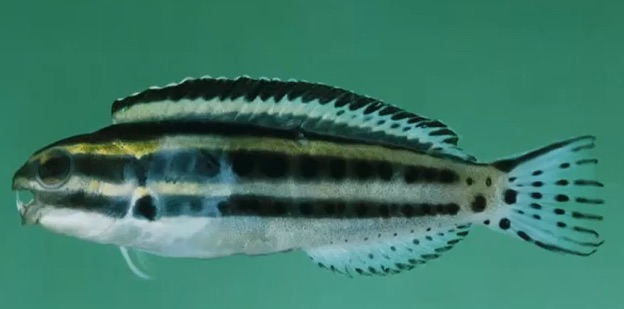Discovery is part of a burgeoning scientific field where researchers are looking for toxins from animals and plants to use in pain management.
A fish that immobilises its prey by injecting them with a heroin-like substance could hold the key to a new generation of painkillers.
The fanged blenny (Meiacanthus grammistes) grows to around 11 centimetres long and lives in the western region of the Pacific Ocean, including the Great Barrier Reef. It is often sought after by tropical fish enthusiasts for aquaria.
According to research published in Current Biology, the blenny is unique, because rather than disabling its prey by mutilation or the deployment of immobilising venom, it uses a substance that renders its target insensate and oblivious to pain.
“The fish injects other fish with opioid peptides that act like heroin or morphine, inhibiting pain rather than causing it,” says Bryan Fry of the the University of Queensland, who led the research.
“Its venom is chemically unique. It causes the bitten fish to become slower in movement and dizzy by acting on their opioid receptors.”
It is delivered through two large teeth on the lower jaw, which have grooves that connect to glands beneath them.
“Fanged blennies are the most interesting fish I’ve ever studied and have one of the most intriguing venoms of them all,” says Fry.
He adds that the existence of the fish is yet another reason to ensure the Great Barrier Reef is protected. Without it, he says, we are in danger of losing “the source of the next blockbuster pain-killing drug.”
Agencies/Canadajournal
 Canada Journal – News of the World Articles and videos to bring you the biggest Canadian news stories from across the country every day
Canada Journal – News of the World Articles and videos to bring you the biggest Canadian news stories from across the country every day



